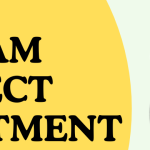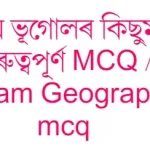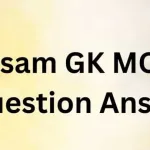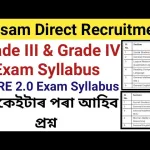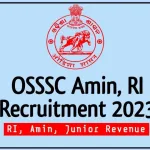Assam Direct Recruitment Exam, also known as ADRE 2.0, is one of the most significant recruitment examinations conducted in the state of Assam. It aims to fill various posts in different government departments, offering an excellent opportunity for candidates aspiring to secure a government job.
Introduction to ADRE 2.0
Assam Direct Recruitment Exam 2.0 is a competitive examination organized by the Assam State Government. It aims to recruit candidates for various posts across different government departments in Assam. The recruitment process is designed to select eligible candidates based on their performance in the written examination, skill tests (if applicable), and personal interviews.
The recruitment process is an essential part of the government’s efforts to ensure transparency and merit-based selection in filling vacancies in various government departments. This initiative not only provides employment opportunities to the youth of Assam but also strengthens the workforce of the state’s administrative machinery.
Eligibility Criteria
Before applying for the ADRE 2.0, candidates must ensure that they meet the eligibility criteria set by the examination authorities. The eligibility criteria are generally divided into three main categories: age limit, educational qualification, and nationality.
Age Limit: The minimum age limit for candidates is usually 18 years, and the maximum age limit varies depending on the post applied for. Age relaxation is applicable for reserved categories as per government norms.
Educational Qualification: The educational qualification required for ADRE 2.0 varies according to the post. Candidates should possess the relevant degree or qualification from a recognized board or university.
Nationality: Candidates must be Indian citizens and residents of Assam.
Exam Pattern
The ADRE 2.0 follows a structured exam pattern that includes multiple-choice questions (MCQs). The examination is divided into various sections, each focusing on a different subject area. Understanding the exam pattern is crucial for candidates as it helps them prepare strategically and manage their time effectively during the examination.
General Knowledge: This section tests candidates’ awareness of current affairs, history, geography, politics, and other general knowledge topics.
English Language: This section evaluates the candidate’s proficiency in the English language, including grammar, vocabulary, comprehension, and writing skills.
Quantitative Aptitude: This section assesses the candidate’s mathematical abilities, including topics such as arithmetic, algebra, geometry, and data interpretation.
Reasoning Ability: This section tests the candidate’s logical reasoning and analytical skills through questions on patterns, sequences, puzzles, and critical thinking.
Subject-Specific Knowledge: Depending on the post applied for, candidates may be tested on subject-specific knowledge related to their field of study or work experience.
Syllabus
The syllabus for ADRE 2.0 is comprehensive, covering a wide range of topics. Below is an outline of the key topics under each section:
General Knowledge:
- Current Affairs (National and International)
- History of Assam and India
- Geography (Physical, Political, Economic)
- Indian Constitution and Political System
- Economy of Assam and India
- Environmental Issues and Ecology
English Language:
- Grammar (Parts of Speech, Tenses, Voice)
- Vocabulary (Synonyms, Antonyms, Idioms, Phrases)
- Reading Comprehension
- Writing Skills (Essay, Letter Writing)
- Error Spotting and Correction
Quantitative Aptitude:
- Number System
- Simplification and Approximation
- Percentages, Ratio and Proportion
- Profit and Loss, Simple and Compound Interest
- Time, Speed, and Distance
- Data Interpretation (Tables, Graphs, Charts)
Reasoning Ability:
- Logical Reasoning
- Analytical Reasoning
- Puzzles and Seating Arrangements
- Blood Relations and Direction Sense
- Coding-Decoding, Alphanumeric Series
- Statement and Conclusion
Subject-Specific Knowledge:
- Varies according to the post applied for. Candidates should refer to the official notification for detailed subject-specific topics.
Selection Process
The selection process for ADRE 2.0 typically involves multiple stages, ensuring that only the most qualified and suitable candidates are selected for the respective posts. The selection process generally includes the following stages:
Written Examination: The first stage of the selection process is the written examination. Candidates are required to answer multiple-choice questions based on the syllabus mentioned above. The written exam is designed to test the candidate’s knowledge, skills, and aptitude related to the job profile.
Skill Test (if applicable): For certain posts, candidates may be required to appear for a skill test after qualifying in the written examination. The skill test assesses the candidate’s practical abilities related to the specific job role, such as typing speed, computer proficiency, or technical skills.
Personal Interview: Shortlisted candidates from the written examination and skill test are called for a personal interview. The interview panel evaluates the candidate’s communication skills, personality, and suitability for the job role.
Document Verification: After successfully clearing all the stages, candidates are required to submit their documents for verification. This process ensures that the candidates meet all the eligibility criteria and have provided accurate information during the application process.
Example Questions and Answers
To help candidates prepare effectively for the ADRE 2.0, here are some example questions and answers for each section of the examination:
General Knowledge:
Q1: Who is the current Chief Minister of Assam?
Answer: The current Chief Minister of Assam is Himanta Biswa Sarma.
Q2: Which river is known as the lifeline of Assam?
Answer: The Brahmaputra River is known as the lifeline of Assam.
Q3: When was the Indian Constitution adopted?
Answer: The Indian Constitution was adopted on 26th November 1949.
Q4: What is the capital of Assam?
Answer: The capital of Assam is Dispur.
Q5: Which festival is celebrated as the harvest festival in Assam?
Answer: Bihu is celebrated as the harvest festival in Assam.
English Language:
Q1: Choose the correct synonym for the word “Benevolent.”
Answer: The correct synonym for “Benevolent” is “Kind.”
Q2: Identify the error in the following sentence: “She is more smarter than her sister.”
Answer: The error is in the phrase “more smarter.” The correct sentence should be: “She is smarter than her sister.”
Q3: Fill in the blank with the correct preposition: “He is good ___ mathematics.”
Answer: The correct preposition is “at.” The sentence should be: “He is good at mathematics.”
Q4: Choose the correct word to complete the sentence: “The manager was impressed with her ___ to handle the situation.”
Answer: The correct word is “ability.” The sentence should be: “The manager was impressed with her ability to handle the situation.”
Q5: Write a short essay on the topic “Importance of Education.”
Answer: Education is the cornerstone of personal and societal development. It equips individuals with the knowledge and skills necessary to navigate the complexities of life, contributes to personal growth, and fosters critical thinking. Education empowers people to make informed decisions, pursue careers, and participate actively in their communities. It also plays a vital role in promoting equality and reducing poverty by providing opportunities for all, regardless of their background. In a broader sense, education is essential for the progress and prosperity of nations, as it lays the foundation for innovation, economic growth, and social stability.
Quantitative Aptitude:
Q1: If the sum of two numbers is 70 and their difference is 20, what are the two numbers?
Answer: Let the two numbers be x and y. Then, x + y = 70 and x – y = 20. Solving these equations, we get x = 45 and y = 25.
Q2: A man travels 20 km at a speed of 4 km/h and returns at a speed of 5 km/h. What is his average speed for the entire journey?
Answer: The average speed for the entire journey is calculated as total distance divided by total time. Total distance = 20 km + 20 km = 40 km. Time taken for the onward journey = 20 km / 4 km/h = 5 hours. Time taken for the return journey = 20 km / 5 km/h = 4 hours. Total time = 5 hours + 4 hours = 9 hours. Average speed = 40 km / 9 hours = 4.44 km/h.
Q3: If the cost price of an article is Rs. 150 and the selling price is Rs. 180, what is the profit percentage?
Answer: Profit = Selling Price – Cost Price = Rs. 180 – Rs. 150 = Rs. 30. Profit percentage = (Profit / Cost Price) x 100 = (30 / 150) x 100 = 20%.
Q4: Simplify the expression: 8 + 4 × (6 – 2) ÷ 2
Answer: Simplifying the expression: 8 + 4 × (6 – 2) ÷ 2 = 8 + 4 × 4 ÷ 2 = 8 + 16 ÷ 2 = 8 + 8 = 16.
Q5: If the ratio of the ages of two persons is 4:5 and the sum of their ages is 90 years, what are their respective ages?
Answer: Let the ages of the two persons be 4x and 5x. Then, 4x + 5x = 90. Solving this, we get x = 10. Therefore, their ages are 40 years and 50 years.
Reasoning Ability:
Q1: Find the next number in the series: 2, 6, 12, 20, 30, ?
Answer: The series follows the pattern of adding consecutive even numbers: 2 + 4 = 6, 6 + 6 = 12, 12 + 8 = 20, 20 + 10 = 30. The next number should be 30 + 12 = 42.
Q2: In a certain code language, “BIRD” is coded as “CJSE.” How will “FISH” be coded?
Answer: The pattern followed is adding 1 to the ASCII value of each letter: B+1 = C, I+1 = J, R+1 = S, D+1 = E. Similarly, F+1 = G, I+1 = J, S+1 = T, H+1 = I. Therefore, “FISH” will be coded as “GJTI.”
Q3: If A is the brother of B, B is the sister of C, and C is the mother of D, how is A related to D?
Answer: A is the uncle of D.
Q4: Which of the following is the odd one out: Apple, Mango, Banana, Carrot?
Answer: Carrot is the odd one out because it is a vegetable, while the others are fruits.
Q5: Arrange the following words in alphabetical order: Zebra, Apple, Mango, Banana.
Answer: The alphabetical order is: Apple, Banana, Mango, Zebra.
Subject-Specific Knowledge:
For candidates applying for specific posts, subject-specific knowledge is essential. Below are some example questions and answers based on general categories:
For Engineering Posts:
Q1: What is Ohm’s Law?
Answer: Ohm’s Law states that the current flowing through a conductor between two points is directly proportional to the voltage across the two points, provided the temperature remains constant. It is mathematically expressed as V = IR, where V is voltage, I is current, and R is resistance.
Q2: Define the term “Thermodynamics.”
Answer: Thermodynamics is a branch of physics that deals with the study of the relationships between heat, work, temperature, and energy. It is concerned with the laws governing the conversion of energy from one form to another and the direction of heat transfer.
Q3: What is the principle of a transformer?
Answer: A transformer operates on the principle of electromagnetic induction. It transfers electrical energy between two or more circuits through electromagnetic induction, typically using a primary and secondary winding around a magnetic core.
Q4: Explain the difference between AC and DC current.
Answer: AC (Alternating Current) is an electric current that reverses its direction periodically, whereas DC (Direct Current) flows in a single direction. AC is commonly used in household power supply, while DC is used in battery-operated devices.
Q5: What are the different types of loads in structural engineering?
Answer: The different types of loads in structural engineering include dead loads (permanent static forces), live loads (temporary dynamic forces), wind loads, seismic loads, and environmental loads such as snow or rain.
For Administrative Posts:
Q1: What is the role of a public administrator?
Answer: A public administrator is responsible for implementing government policies, managing public resources, overseeing public programs, and ensuring that government services are delivered efficiently and effectively to the public.
Q2: Define the term “Public Policy.”
Answer: Public Policy refers to the actions taken by the government to address issues within society. It encompasses the laws, regulations, and actions taken by the government to solve problems, provide services, and promote the well-being of citizens.
Q3: What is the significance of the Right to Information (RTI) Act?
Answer: The Right to Information (RTI) Act empowers citizens to seek information from public authorities, promoting transparency and accountability in government functioning. It allows citizens to access government records and ensures that public officials are answerable to the public.
Q4: What is the difference between a budget deficit and a fiscal deficit?
Answer: A budget deficit occurs when the government’s expenditures exceed its revenues in a given fiscal year. A fiscal deficit is a broader term that includes the budget deficit plus the interest payments on the government’s debt.
Q5: Explain the concept of “Good Governance.”
Answer: Good Governance refers to the effective and efficient management of public affairs and resources by the government, characterized by transparency, accountability, rule of law, participation, and responsiveness to the needs of the people.
Preparation Tips for ADRE 2.0
Preparing for ADRE 2.0 requires a well-structured study plan, a deep understanding of the syllabus, and consistent practice. Here are some tips to help candidates prepare effectively:
- Understand the Exam Pattern and Syllabus: Familiarize yourself with the exam pattern and syllabus to prioritize your study plan.
- Create a Study Schedule: Allocate sufficient time for each subject and stick to your study schedule consistently.
- Practice Previous Year Question Papers: Practicing previous year question papers will help you understand the type of questions asked and improve your time management skills.
- Take Mock Tests: Regularly take mock tests to assess your preparation level and identify areas where you need improvement.
- Revise Regularly: Regular revision is essential to retain information and reinforce your understanding of key concepts.
- Focus on Weak Areas: Identify your weak areas and allocate extra time to strengthen them.
- Stay Updated with Current Affairs: Keep yourself updated with current affairs, especially those related to Assam and India.
The ADRE 2.0 is a gateway to securing a prestigious government job in Assam. With the right preparation strategy, a thorough understanding of the syllabus, and consistent practice, candidates can excel in this examination. The key to success lies in staying focused, managing your time effectively, and maintaining a positive attitude throughout the preparation journey. This article has provided you with an in-depth understanding of the ADRE 2.0, along with example questions and answers to guide your preparation. Best of luck in your exam preparation and future endeavors!
Latest Posts
- Step-by-step guide to download and apply for jee mains admit card 202
- Comprehensive 2025 government holidays and recruitment details for job seekers
- JEE Mains Admit Card 2025: Your Step-by-Step Guide to Downloading the Hall Ticket
- Everything You Need to Know About 2025 Government Holidays Recruitment
- Comprehensive Guide to rrb d group recruitment 2025 – Eligibility, Vacancies, and Application
- Detailed guide to nps trust recruitment 2025 vacancies, eligibility and apply process
- Comprehensive guide to hpcl recruitment 2025 notification, vacancies, and application process
- ignou bed admission 2025 complete recruitment guide with eligibility and process
- Comprehensive Guide to Indian Army Agniveer Recruitment 2025 Notification and Jobs
- Everything You Must Know About CBSE Board Exams 2025 Changes & New Rules

